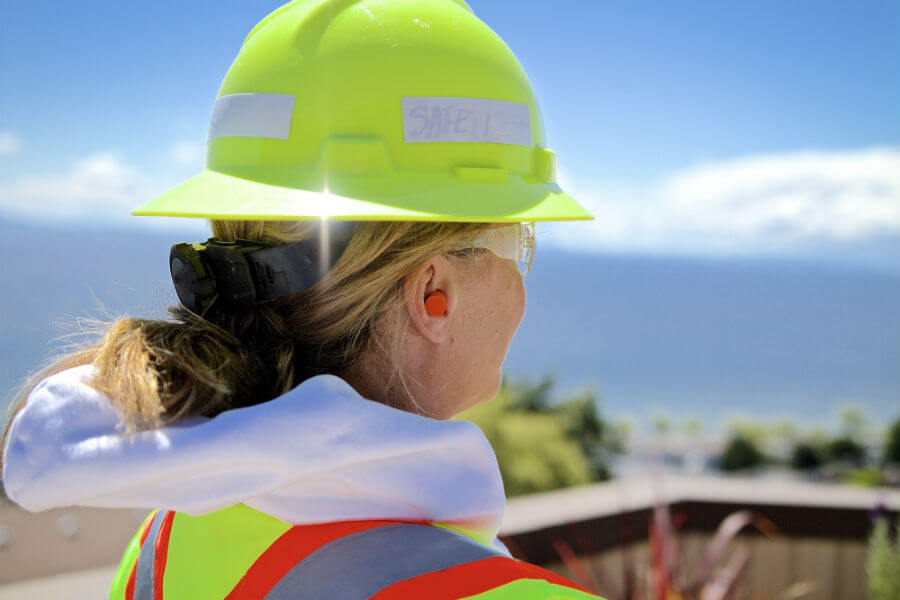
Construction workers at high risk of hearing loss, says expert
DUBAI, February 10, 2022
Around 51 per cent of construction workers are exposed to hazardous noise and 25 per cent of noise tested construction workers have a hearing impairment, sad a report released ahead of Hearing Day which fall on March 3.
If workers are exposed to high noise levels of 85dB then employers are responsible for providing hearing protection and hearing protection zones, and for sound levels at 80dB an employer must carry out a risk assessment and provide information and training to workers.
Katie Ogden, a HCPC registered hearing aid dispenser and the Training Manager of the ReSound offers some advice both on the dangers of not protecting your hearing during construction work, and tips on how to make sure your hearing is adequately protected.
"Activities such as digging, concrete pouring and angle grinding are particularly loud aspects of the job, and if workers don’t protect their ears adequately, they can cause severe damage to their long term hearing," stated Ogden.
"High noise levels in a workplace can also interfere with communication between workers, leading to an increased risk of accidents, injury and even death," she noted.
"Not only can heavy plant machinery, jigger picks, wacker plates etc have an impact on hearing, they can also cause further medical conditions such as hand arm vibration syndrome," she pointed out.
"This is why wearing the right personal protective equipment (PPE) is extremely important, with workers who refuse to do so putting themselves at risk of cuts and punctures, chemical burns, electric shocks and exposure to excessive noise or vibration," she added.
Below, Ogden shares the PPE that employers must provide to workers, what to do if you fear your employer isn't helping you to protect your hearing, and other hearing safety tips:
“The construction industry reports a high number of fatal injuries and accidents per year, with workers knowingly subjecting themselves to high-risk - and often hazardous - situations, which is why PPE is so important,” she noted.
“PPE is used to protect employees from health and safety risks they might encounter at work, including injuries to the lungs, head, eyes, ears and skin. Well-fitted PPE can therefore quite literally offer the difference between life and death in some cases.
"Types of protection required by employers include head, foot and leg, eye and face, and ear protection, particularly important for workers operating in loud environments," said Kati
“Options available to protect ears include earplugs, earmuffs and semi-insert/canal caps. Ear PPE must provide a suitable level of protection for the work being undertaken, and all workers must be clear on how to wear their PPE correctly, to ensure maximum protection.
"If workers have any concerns about the PPE they have been provided with, they should raise the issue with their employer," stated Ogden.
Other general tips for construction workers to protect their hearing include:
Take everyday noise protection care
Whilst normal ear plugs bought from a supermarket can protect and block sound, high-quality industrial earplugs are much better to help protect your ears and ear drums.
Industrial ear plugs are one of the best ways for you to protect your hearing. They are small inserts that fit into your outer ear canal. They work by blocking the air canal with an airtight seal to block noise from entering your ears.
If you have trouble keeping them in your ears, you can even get earplugs that are fitted to a headband to ensure they are constantly blocking out noise.
Ear muffs/Ear Defenders are a slightly different option to earplugs as they sit on top of the ear rather than just blocking the canal.
By fitting over the entire outer ear, ear muffs can form an air seal to protect the ear canal and for those who struggle with ear plugs fitting, they are held in place by an adjustable band connecting the two muffs. To work best, the muffs will need to fit over the entire ear.-TradeArabia News Service







